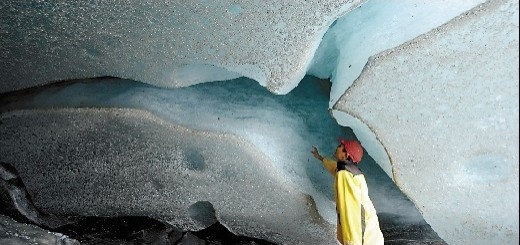Glaciers Melting Across Southwest China

Glaciers aren't only melting in Antarctica or the Arctic.
The large ice masses in southwest China are also decreasing, coinciding with warming temperatures, according to research published Wednesday.
The southwestern region of China has 23,488 glaciers that cover an area of just slightly smaller than Maryland across the Himalayas and the Nyainqntanglha, Tanggula and Hengduan mountains.
Researchers examined data from 111 weather stations across southwestern China and have shown that temperature patterns were consistent with warming, at a statistically significant level, between 1961 and 2008.
The researchers published their findings Wednesday in Environmental Research Letters.
Of the 111 stations examined, the researchers found 77 per cent displayed statistically significant increases in annual temperature.
Scientists across southwest China have found the glaciers are melting faster than expected, according to a recent report from Xinhua, the official state media in China.
Around 80 glaciers around the Aemye Ma-chhen Range, the source of the Yellow River headwaters, is shrinking especially fast, Xinhua reported.
I can sometimes see the Ameye Ma-chhen Range on the plane. But I worry that we are not likely to see the glaciers there in ten years or more, Li Xiaonan, deputy head of the office, said.
The lead author of the current study, Zongxing Li, said, I think glacial loss is caused mainly by rises in temperature, especially in the high altitude regions. From the 14 weather stations above 4,000 meters, there was an annual mean temperature increase of 1.73 °C from 1961 to 2008.
It is imperative we determine the relationship between climate change and glacier variations, particularly the role of precipitation, as the consequences of glacial retreat are far reaching.
In one case, Cheng Haining, senior engineer with the provincial surveying and mapping bureau, noted that about 5.3 percent, or roughly the area of Boca Raton, Fla., of the glaciers in Yangtze headwaters had melted away over the past 30 years.
Cheng said that the melting of glaciers is closely connected with climate change. He added that data collected by three meteorological stations over the past 50 years show a continued rise in the average temperature of the three-river headwaters area.
© Copyright IBTimes 2024. All rights reserved.





















